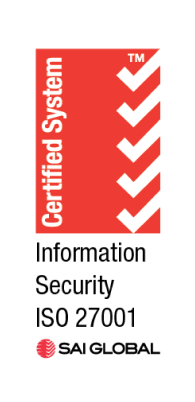Navigating the Future: Selecting a Managed IT Services Provider for Enterprise and SME’s in 2024
In the ever-evolving digital landscape, Managed IT Services Providers (MSPs) play a pivotal role in supporting businesses through technological advancements. The rapid acceleration of cloud adoption and a heightened focus on cybersecurity are primary drivers for partnering with an MSP. This trend is crucial not just for large enterprises but also for medium-sized businesses striving to stay competitive and secure in a digital-first world.
The Importance of Personalisation in Managed IT Services
The trend towards personalised cloud and managed services marks a significant shift in IT strategy deployment. Tailored solutions are critical for addressing the unique challenges and objectives of businesses, regardless of their size. With cloud adoption rates soaring and cybersecurity incidents on the rise, bespoke IT strategies have become indispensable. This need is underscored by the forecast that worldwide end-user spending on public cloud services is expected to grow to $678.8 billion in 2024, up from $563.6 billion in 2023, according to Gartner.
Key Considerations When Choosing a Managed IT Services Provider (MSP)
Selecting the right Managed IT Services Provider (MSP) is a strategic decision that impacts every facet of a business’s operations and future growth. For both enterprises and medium-sized businesses, considering an MSP’s capabilities, alignment with business objectives, and the ability to provide strategic value beyond day-to-day IT management is essential.
Here are key considerations updated for 2024 to guide this critical choice:
- Expertise and Experience in Your Industry: Look for an MSP with a proven track record in your specific industry. This experience means they’re familiar with the common challenges and regulatory requirements you face and can proactively address them.
- Technological Innovation and Scalability: The ability of an MSP to offer cutting-edge solutions and to scale those solutions as your business grows is critical. Evaluate their commitment to innovation, how they stay current with emerging technologies, and their approach to integrating new technologies into their service offerings.
- Security and Compliance: With cybersecurity threats evolving rapidly, choosing an MSP that prioritises security and compliance is non-negotiable. Assess their security infrastructure and policies and whether they follow best practices like Essential 8 and ISO27001. There is also a rise in more simple yet still sophisticated cyber security frameworks like SIMPLEX6 that make it easier for SMEs to mature their cyber resilience. Also, consider their experience with compliance standards relevant to your industry.
- Customisation and Personalisation of Services: The MSP should be willing to tailor their services to fit your business’s unique needs. Personalised service plans ensure you’re not paying for unnecessary services and that your IT infrastructure aligns closely with your business objectives.
- Service Level Agreements (SLAs) and Response Times: The details in the SLA, including guaranteed response times, outline the MSP’s commitment to service quality and reliability. Review these carefully to ensure they match your expectations and requirements.
- Strategic Planning and Advisory Services: Beyond day-to-day IT management, the best MSPs act as strategic partners. They should offer guidance on technology trends that could impact your business and help you plan your IT strategy to support long-term business goals.
- Client References and Case Studies: Request and review case studies or testimonials from current or past clients, especially those in similar industries or with similar IT environments. These references can provide insights into the MSP’s performance and the client satisfaction levels they achieve.
- Cost Structure and Flexibility: Understand the MSP’s fee structure, including any potential costs for additional services or support requests. It’s important to ensure their pricing model is transparent and predictable, aligning with your budgetary constraints while offering the flexibility to adapt as your needs change.
- Cultural Fit and Communication: The MSP should align with your company’s culture and values, ensuring a seamless partnership. Effective communication and a clear understanding of roles and responsibilities are key to a successful relationship.
- Geographical Coverage and Local Support: If your business operates in multiple locations, consider the MSP’s ability to provide support across all sites. Local support can be crucial for resolving issues quickly and effectively.
- Disaster Recovery and Business Continuity Planning: Evaluate the MSP’s capabilities in disaster recovery and business continuity planning. Their approach should ensure minimal downtime and data loss in the event of an IT disaster.
By carefully considering these points, businesses can select an MSP that not only meets their current IT needs but also supports their strategic objectives and growth over time. The right MSP becomes a valuable partner in navigating the complexities of today’s digital landscape, driving efficiency, innovation, and competitive advantage.
Author: Daniel Fleetwood





